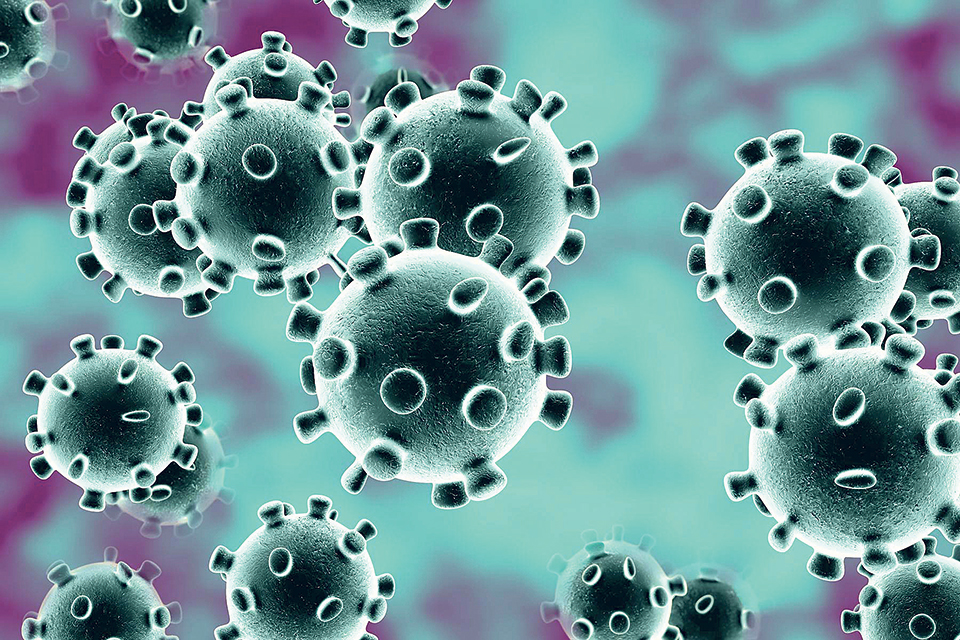
OR
Focus on COVID-19 could increase mortality of other diseases
Published On: April 2, 2020 12:30 PM NPT By: SHREE RAM SUBEDI

KATHMANDU, April 2: Bijaya Kushwaha, 25, of Kalaiya, Bara sustained a leg injury while operating a thresher machine on Friday. A local medic gave 35 stitches to his wound before he was taken to the National Medical College, Birgunj on Saturday for further treatment. But after he developed cough and fever early Sunday, the hospital declined to continue his treatment suspecting it to be a COVID-19 case and instead referred him to the Shukraraj Tropical and Infectious Disease Hospital (STIDH) in Kathmandu. Unfortunately, Kushwaha died on his way to Kathmandu.
In another case, Anil Patel, 28, of Bahudarmai Municipality-1, Parsa suffered from respiratory difficulties on Monday. He was rushed to Gandak Hospital, Birgunj. But the hospital declined to admit him so he was taken to Bhawani Hospital, where he was lucky to receive treatment through a staff, who knew Patel personally.
In Kathmandu last Thursday, a renal patient Chhabi Gurung died as he could not reach the National Kidney Center Balaju for his regular dialysis. He waited for an ambulance for several hours and died at his home, according to the chairperson of the Shree Kidney Victim Concern Society, Balaram Subedi.
These cases are just the tip of the iceberg. Similar cases are in abundance across the country where private as well as the government-owned hospitals were reluctant to treat patients even though the patients did not show coronavirus symptoms, according to media reports.
As the nation and its strained health system is grappling to address the threat of the deadly virus, other equally urgent public health concerns are on hold. This has raised a fear that mortality from other treatable diseases could become higher than from COVID-19.
The entire country is under a lockdown to prevent the spread of coronavirus-COVID-19 since March 24. Majority of the regular vaccines provided by the immunization clinics are not being administered since the COVID-19 fear gripped the country. Also, antenatal clinics at many hospitals remain closed.
“It's a matter of concern that COVID-19 has eclipsed every other disease, which deserves equal attention,” Tribhuban University Professor Shiva Adhikari, who specialized on health economics, said.
“It is understandable that COVID-19 is the number one challenge now, but this doesn't mean that we should ignore other health concerns. If left unattended, the mortality from vaccine-preventable and other treatable conditions may shoot up,” Adhikari said.
The public health crisis would deepen further if routine healthcare is ignored, says Dr Sushil Baral, a public health expert, affiliated with Herd International, a research and development agency. “If the COVID-19 crisis prolongs, routine health delivery would become an even bigger challenge.”
Dr Sheetal Adhikari, who specialized in pulmonary and critical care and is affiliated to the Chitwan Medical College, highlights the need for treating other diseases with equal priority.
“Patients suffering from other conditions and diseases should be given utmost priority because they are the most vulnerable to COVID-19,” he said, stating that most of those dying from COVID-19 in other countries had pre-existing conditions mostly related to heart, kidney, lungs, liver and brain.
Echoing the same concern, the World Health Organization (WHO) this week has warned that the death toll from other diseases could surpass COVID-19 toll as the pandemic is straining public health systems worldwide.
“Previous outbreaks have demonstrated that when health systems are overwhelmed, mortality from vaccine-preventable and other treatable conditions can also increase dramatically,” the UN body said on Monday.
“During the 2014-2015 Ebola outbreak, the increased number of deaths caused by measles, malaria, HIV/AIDS, and tuberculosis attributable to health system failures exceeded deaths from Ebola, “ WHO said in a statement referring to the COVID-19 crisis. A total of 11,300 people had died due to Ebola virus in West African countries.
As most of the hospitals are currently unwilling to take in patients suffering from other conditions and diseases, the Ministry of Health and Population (MoHP) on Monday issued a notice saying that the designated and hub hospitals, provincial hospitals, teaching hospitals and health science academies, which are entrusted to treat COVID-19, should also continue their emergency services.
Dr Bikash Devkota, spokesperson at the Ministry of Health and Population also agreed that health system should respond to all types of diseases equally.
“Just because a patient has fever high, hospitals cannot turn him/her away. Fever is a symptom of several illnesses and diseases,” Devkota said.
You May Like This

I am tired of giving clarifications: Miya
KATHMANDU, April 12: Various India media reported on Friday that about 200 COVID-19 infected Muslim people are set to enter... Read More...

Officials kept mum about machine that could test 140 samples daily
POKHARA, April 7: It has come to the fore that officials at Pokhara Hospital and Research Center kept mum over... Read More...

'The society made me infected, I was not'
DANG, March 31: After a girl who returned from France to Nepal recently tested positive for the novel coronavirus, the... Read More...




Just In
- CM Kandel requests Finance Minister Pun to put Karnali province in priority in upcoming budget
- Australia reduces TR visa age limit and duration as it implements stricter regulations for foreign students
- Govt aims to surpass Rs 10 trillion GDP mark in next five years
- Govt appoints 77 Liaison Officers for mountain climbing management for spring season
- EC decides to permit public vehicles to operate freely on day of by-election
- Fugitive arrested after 26 years
- Indian Potash Ltd secures contract to bring 30,000 tons of urea within 107 days
- CAN adds four players to squad for T20 series against West Indies 'A'














Leave A Comment